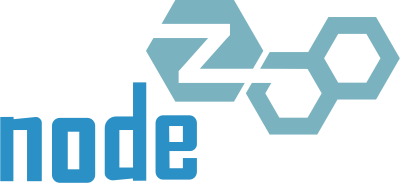nodezoo-github
v6.3.0
Published
A micro-service that provides Github related information to NodeZoo
Downloads
9
Readme

nodezoo-github
- Lead: Dean McDonnell
- Sponsor: nearForm
A micro-service that provides Github related information to NodeZoo. This micro-service requires a valid Github token to function, please see the Config section below for details on how to obtain.
If you're using this micro-service, and need help, you can:
- Post a github issue,
- Tweet to @nodezoo,
- Ask on the Gitter.
Running
This micro-service can be ran as part of a complete system or as a single isolated unit.
As a complete system
A special system repository is available that runs the complete system using Docker and Fuge.
Isolated mode
To make testing easier this micro-service can be ran in 'isolated' mode. This mode allows testing over http using a well defined port. Please note isolated mode means patterns are not exposed via mesh.
To run in isolated mode,
- Clone this repository locally,
- Run
npm install, - Run
GITHUB_TOKEN=YOUR_TOKEN npm start isolated,
Note: You will need to have a valid github token to use isolated mode.
A simple http service is supported and can be called using Curl or other Rest client.
The default port is 8052. It can be changed using the GITHUB_PORT environment
variable.
curl -d '{"role":"github","cmd":"get","name":"hapi"}' http://localhost:8052/actConfiguration
Creating a GitHub Personal Access Token
You will need a token for this service if regardless of how you choose to run it.
- On github.com, click your profile photo, then click settings.
- In the user settings sidebar, click Personal access tokens.
- Click Generate new token
- Give your token a descriptive name.
- Select the scopes you wish to grant, select all read-only scopes
- Click 'Generate token'.
- Copy the token to your clipboard and keep safe.
Environment Variables
Various settings can be changed using environment variables, see the list below for all available variable names.
GITHUB_TOKEN
- The token to use when calling the GitHub api.
- Defaults to
NO_TOKEN,
GITHUB_HOST
- The host to listen on in isolated mode.
- Defaults to
localhost
GITHUB_PORT
- The port to listen on in isolated mode.
- Defaults to
8052.
GITHUB_ISOLATED
- Starts isolated mode.
- Defaults to
false.
GITHUB_REGISTRY
- Change the registry used to validate the module name.
- Defaults to
http://registry.npmjs.org/.
Sample Data
{
"entity$": "-\/-\/github_cache",
"name": "fuge",
"user": "apparatus",
"repo": "fuge",
"stars": 155,
"watches": 15,
"forks": 18,
"last": "2016-04-09T21:57:45Z",
"urlRepo": "https:\/\/github.com\/apparatus\/fuge",
"urlClone": "git+https:\/\/github.com\/apparatus\/fuge.git",
"urlSsh": "git@github.com:apparatus\/fuge.git",
"pullRequests": 1,
"cached": 1461229347738
}Messages Handled
This micro-service handles the following messages.
role:github,cmd:get
Request a module's Github details. The name supplied must be a valid module on npm.
seneca.act('role:github,cmd:get', {name: 'seneca'}, (err, data) => {})role:info,req:part
Acts as an alias for role:github,cmd:get but instead of returning data directly a
message is emitted using the pattern role:info,res:part. Allows integration with
the wider nodezoo system.
seneca.act('role:info, req:part', {name: 'seneca'}, (err, data) => {})Messages Emitted
This micro-service emits the following messages
role:info,res:part
Contains the response of an earlier call to role:info,req:part.
seneca.add('role:info,res:part', (msg, done) => {})Data Emitted
- name - Name of the module
- user - The User or Organisation that owns the repository
- repo - The repository name
- stars - Number of stars
- forks - Number of forks
- watches - Numbers of watchers
- last - The last commit to the repository
- urlRepo - A link to the repository
- urlClone - A clone URL
- urlSsh - An SSH URL
- pullRequests - Open pull requests
- cached - The time the data was last cached at
Contributing
The NodeZoo org encourages open and safe participation.
If you feel you can help in any way, be it with documentation, examples, extra testing, or new features please get in touch.
License
Copyright (c) 2014-2016, Richard Rodger and other contributors. Licensed under MIT.
